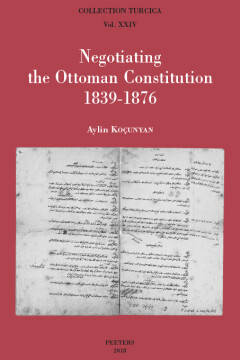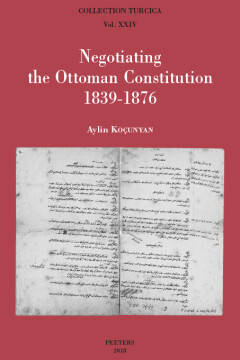
- Afhalen na 1 uur in een winkel met voorraad
- Gratis thuislevering in België vanaf € 30
- Ruim aanbod met 7 miljoen producten
- Afhalen na 1 uur in een winkel met voorraad
- Gratis thuislevering in België vanaf € 30
- Ruim aanbod met 7 miljoen producten
Zoeken
Omschrijving
This book traces the transcultural and transnational dimension of the internal genesis of the Ottoman Constitution, which was promulgated on December 23, 1876. It shows that the constitutional process incorporated, from domestic authorities to foreign Powers, a plurality of formal and informal agents of different ethno-religious, cultural, and ideological backgrounds and that its investigation goes beyond the study of a national narrative. Considering the issue of constitutional reforms from different angles (foreign influence and pressure, the agency of domestic actors and through discourse analysis of reform decrees), the book brings a critical approach to the existing historiographical narratives, which reduce Ottoman constitutional history to a simplistic process of transplanting western legal artefacts and regimes without measuring the selective control of dominant domestic groups over the process. Instead, the book shows the evolution of a continuous set of negotiations of various actors on the idea of constitution in the Ottoman Empire and thus sheds light on the social construction of the idea of justice and constitutional law. The draft constitutions studied throughout the book are the textual embodiment of these negotiations and unveil the ways in which concepts and issues such as legitimacy, the restriction of political power, lawful government, liberty, equality, the rule of people and the treatment of minorities reached the Ottoman context and the ways in which they acquired new meanings or equivalents during their adaptation to the imperial political culture.
Specificaties
Betrokkenen
- Auteur(s):
- Uitgeverij:
Inhoud
- Aantal bladzijden:
- 511
- Taal:
- Engels
- Reeks:
- Reeksnummer:
- nr. 24
Eigenschappen
- Productcode (EAN):
- 9789042935068
- Verschijningsdatum:
- 2/05/2018
- Uitvoering:
- Paperback
- Formaat:
- Trade paperback (VS)
- Afmetingen:
- 160 mm x 239 mm
- Gewicht:
- 916 g

Alleen bij Standaard Boekhandel
+ 178 punten op je klantenkaart van Standaard Boekhandel
Beoordelingen
We publiceren alleen reviews die voldoen aan de voorwaarden voor reviews. Bekijk onze voorwaarden voor reviews.







